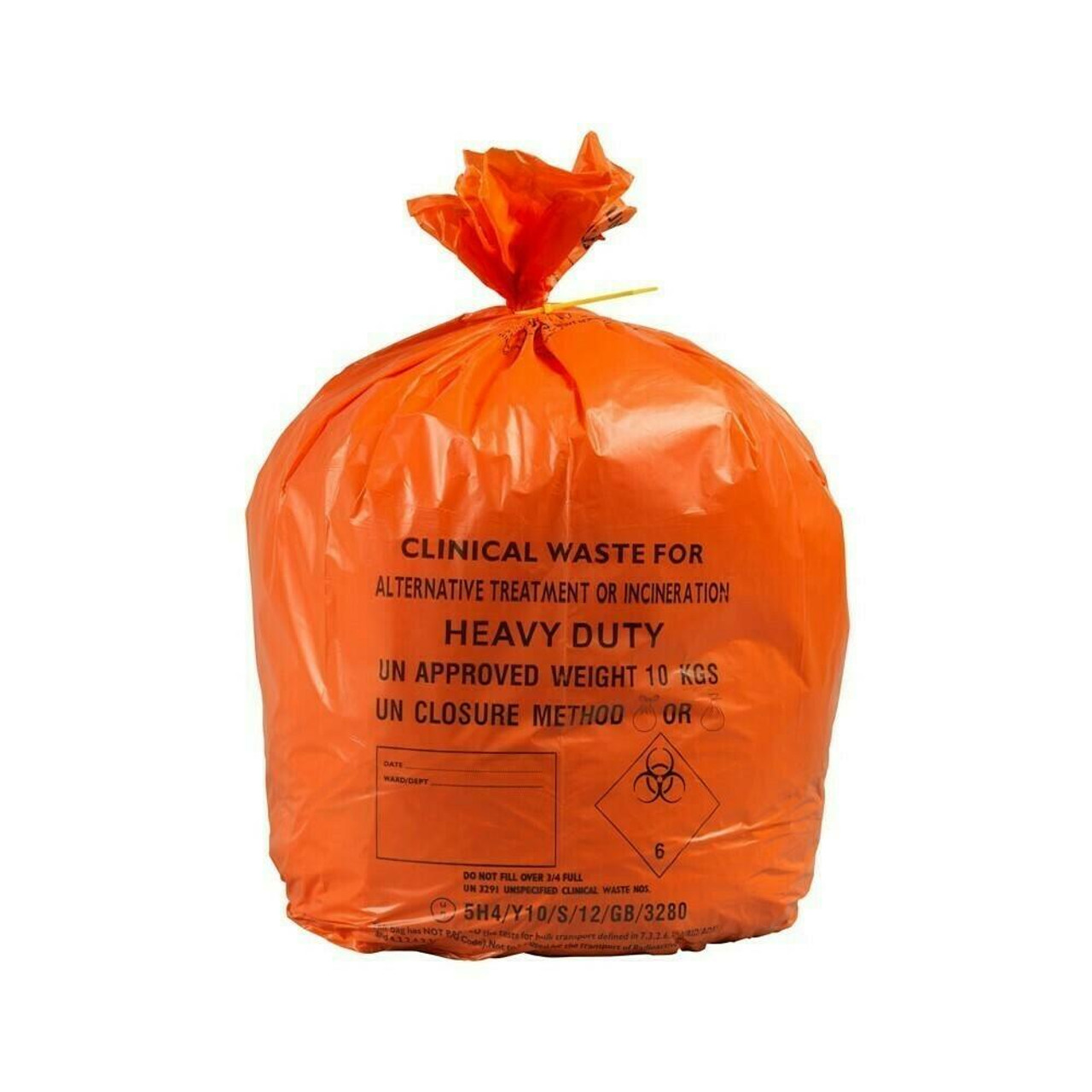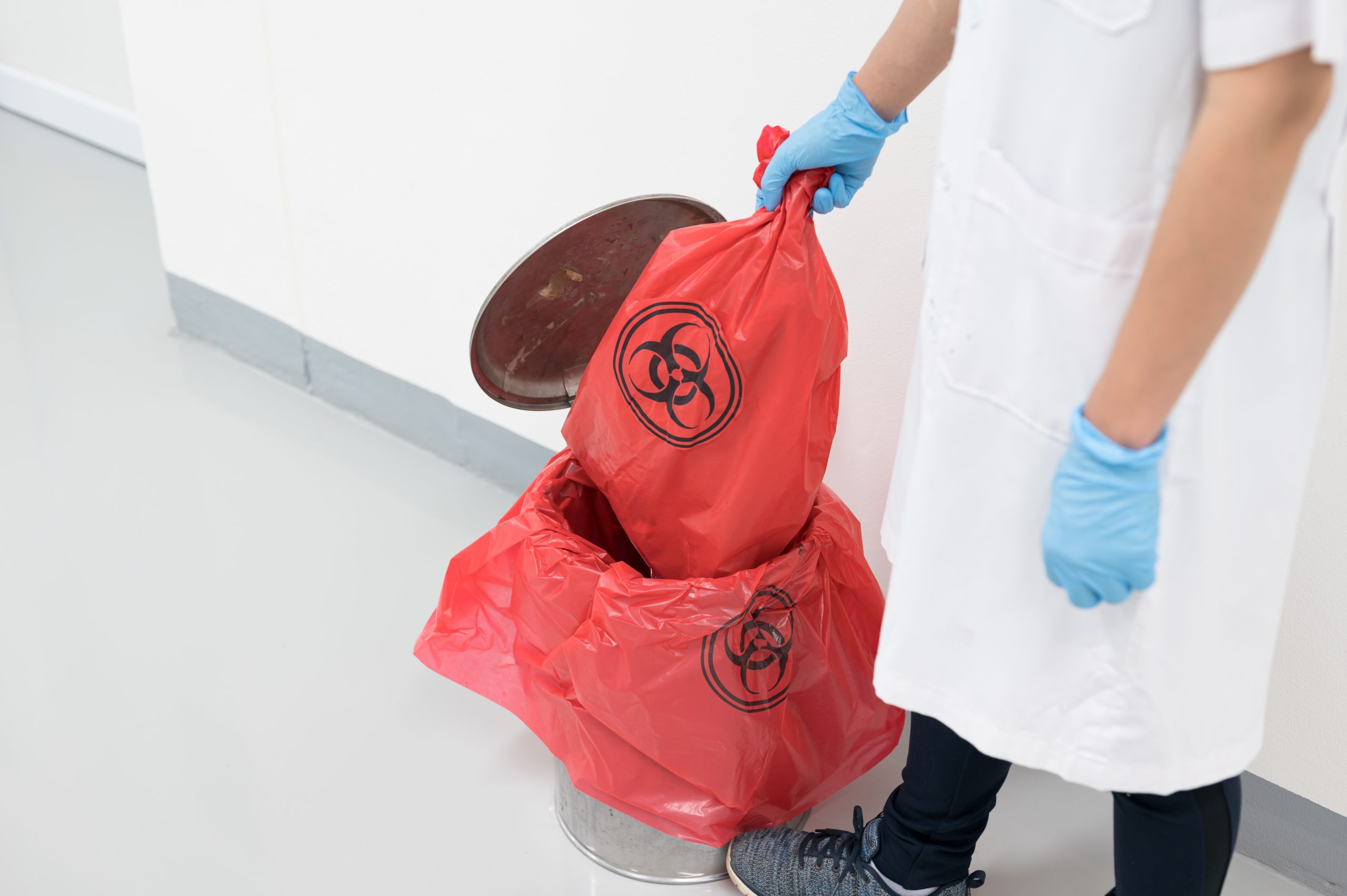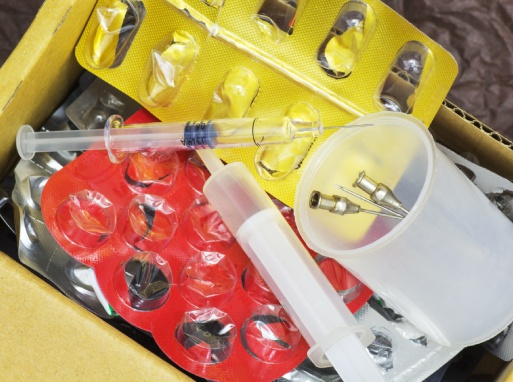With the population continually rising, our need for healthcare services is growing. However, with this rise in demand, come increased levels of waste that can be detrimental to the environment if not managed properly.
Healthcare waste management is essential in ensuring that hazardous materials are disposed of safely and responsibly.
In this blog post, we will explore the issue of healthcare waste management, the various options and techniques available to address it, and how hospitals and other medical institutions can help reduce their environmental impact while still providing quality care to their patients.
What is Healthcare Waste Management?

Healthcare waste management is the process of handling and disposing of medical waste in a safe and responsible manner.
Infectious waste disposal can include anything from used needles and syringes to soiled dressings and body fluids. Improper disposal of healthcare waste can lead to the spread of infection and disease, as well as environmental pollution.
There Are Four Main Steps In Healthcare Waste Management
1) Segregation: Waste must be segregated at the point of generation into different categories, such as infectious or hazardous, before it can be properly disposed of.
2) Collection: Once segregated, waste must be collected in designated containers and stored until it can be transported for disposal.
3) Treatment: Some types of healthcare waste, such as sharps or body fluids, need to be treated before disposal. This may involve sterilisation or incineration.
4) Disposal: The final step in healthcare waste management is disposing of the waste in a safe and legal manner. This usually means using specialised landfill sites or incinerators.
Why Is It Important?
When it comes to addressing the issue of waste, infectious waste is a critical piece of the puzzle. By properly managing healthcare waste, we can help to reduce the amount of waste that is produced and ensure that it is disposed of in a safe and responsible manner.
There are many reasons why healthcare waste management is so important. Properly managed healthcare waste ensures that hazardous materials are disposed of in a way that minimises their impact on the environment. Additionally, it helps to protect public health. Improper disposal of healthcare waste can lead to the spread of disease and contamination of water sources.
Finally, proper healthcare waste management is important for financial reasons. The cost of disposing of healthcare waste improperly can be significant.
In some cases, it can even lead to legal action against the responsible party. By properly managing healthcare waste, we can help to save money and avoid potential legal troubles down the road.
What Are The Different Types Of Healthcare Waste?
There are four main types of healthcare waste:

1. Infectious Waste
Infectious waste is any type of waste that contains pathogens – meaning it has the ability to cause infection. This type of clinical waste management includes items like syringes, needles, and anything else that has come into contact with blood or other bodily fluids.
Infectious waste must be properly dispose of in order to protect both healthcare workers and the general public from potential infection.
2. Hazardous Waste
Hazardous waste is any type of waste that is consider harmful to human health or the environment.
This includes items like chemicals, batteries, and fluorescent light bulbs. Hazardous waste must be properly dispose of in order to protect both healthcare workers and the general public from potential harm.
3. Radioactive Waste
Radioactive waste is any type of waste that contains radioactive materials. This includes items like X-ray film, medical equipment used for cancer treatment, and smoke detectors. Radioactive waste must be properly dispose of in order to protect both healthcare workers and the general public from potential radiation exposure.
4.Non-Hazardous Waste
Non-hazardous waste is any type of waste that does not pose a threat to human health or the environment. This includes items like paper, plastics, and metals. Non-hazardous waste can usually be recycle, but it may also need to be dispose of in a landfill if it cannot be recycle
How Can Healthcare Waste Be Managed?
The first step in addressing the healthcare waste issue is to develop a plan for how waste will be manage. This should be done in consultation with all stakeholders, including healthcare providers, patients, and facilities staff.
The plan should identify the types of waste that will be generate and how it will be dispose of. It should also specify who is responsible for each step of the process. Once the plan is in place, implementation can begin.
Healthcare providers can play a key role in this by ensuring that they are using best practices for generating and disposing of waste.
Patients can also help by being aware of their own responsibility in managing their own wastes. And finally, facilities staff can ensure that the infrastructure is in place to support safe and effective waste management.
In order to be successful, healthcare waste management must be a continuous process. Plans should be regularly review and update as need, and everyone involve should commit to following through on their responsibilities. With everyone working together, we can make headway on this important issue.
What Are The Benefits Of Proper Healthcare Waste Management?
When it comes to healthcare waste management, there are many benefits to be from doing it properly. Perhaps the most obvious benefit is that it helps to keep our environment clean and safe.
This is because when medical waste is not manage properly, it can end up in landfill sites where it can seep into the ground and contaminate water supplies. In addition, proper healthcare waste management can also help to save lives.
This is because some types of medical waste, such as sharps (needles, syringes etc.), can be extremely dangerous if they are not dispose of correctly. If someone comes into contact with a sharp object that has be discard incorrectly, they could suffer a serious injury or even contract a deadly disease.
Finally, another benefit of proper healthcare waste management is that it can save money. This is because if medical waste is not manage effectively, it can lead to expensive cleanup bills for both healthcare facilities and local authorities.
The Importance of Healthcare Waste Management to Environmental
The healthcare industry is one of the largest generators of waste in the United States, with an estimated 6.5 million tons of waste generated each year. Health care waste includes a wide variety of materials, from used needles and syringes to medical devices and pharmaceuticals.
Proper hospital waste disposal is essential to protecting the environment and public health. Improperly managed health care waste can contaminate water supplies, harm wildlife, and cause serious illness or injury to people who come into contact with it.
There are a number of ways to properly manage healthcare waste, including:
- Segregating waste by type
- Using proper containment and labelling
- Training staff on proper waste management procedures
- Working with a reputable medical waste disposal company
By taking these steps, you can help protect the environment and ensure that your facility is in compliance with state and federal regulations.
The WHO has developed guidelines for the proper management of healthcare wastes. These guidelines include:
1) Segregating different types of healthcare wastes at the point of generation;
2) Collecting, transporting, and disposing of healthcare wastes in a safe and environmentally sound manner;
3) Reducing the volume and toxicity of healthcare wastes through treatment and disposal processes.
Hazardous waste can have negative impacts on human health and the environment if they are not managed properly. Improperly managed healthcare wastes can lead to the spread of diseases, contamination of water supplies, and soil pollution.
Conclusion
Healthcare waste management is an important issue that needs to be address. Implementing and following proper procedures, such as those suggested in this article, can help reduce the amount of medical waste produced and ensure a healthier and more sustainable environment for generations to come.
With various innovative technologies now available on the market, healthcare providers have multiple options when it comes to managing their own medical waste. It’s time we start taking advantage of these solutions!

